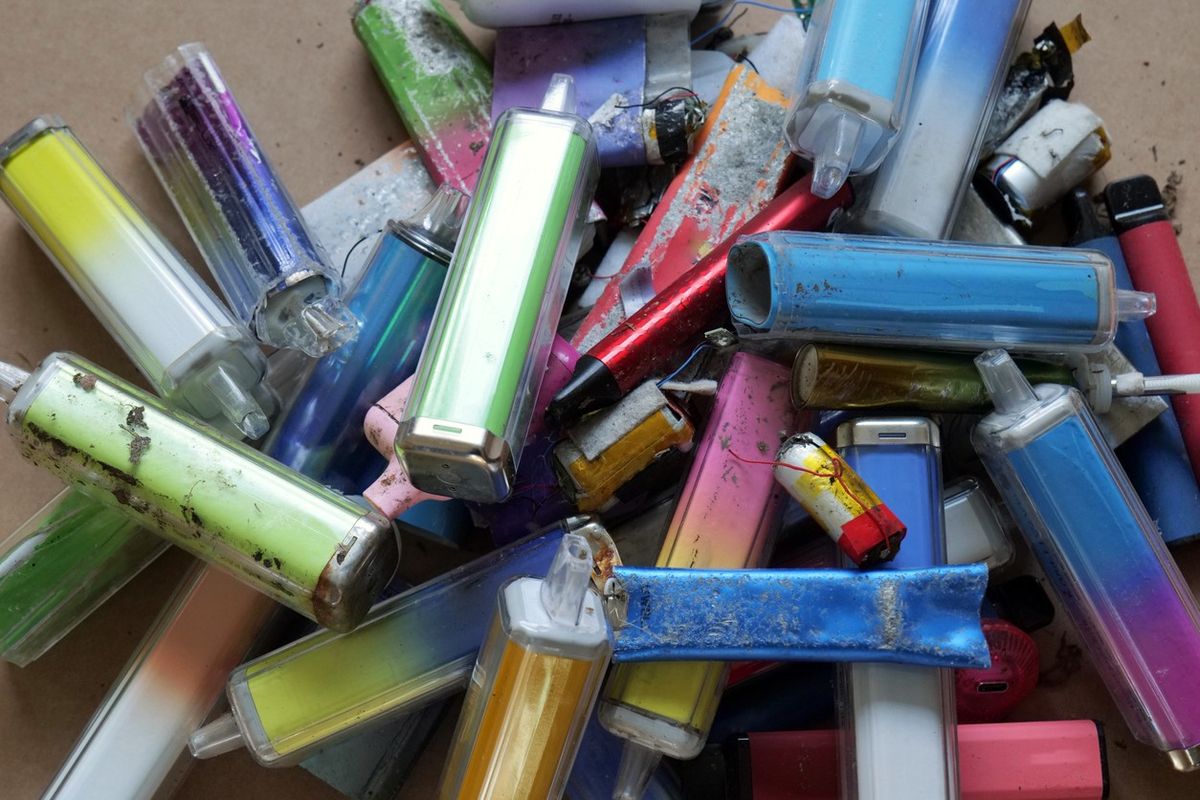As the UK vape industry braces for the June 1st ban on disposable vapes, environmental non-profit Material Focus has issued a stark warning: new generations of vaping products, including "big puff" and pod-based systems, are poised to create significant and continued environmental challenges.
The organisation highlighted that many new products appear designed to circumvent upcoming regulations while retaining the convenience and price points that made disposables popular, potentially leading to similar problematic disposal behaviours.
Material Focus's analysis, building on research first commissioned in 2022, found that an estimated 1.2 billion disposable-style vapes have been purchased, with a staggering three-quarters of a billion (750 million) binned or littered. This equates to the lithium from 16,327 electric vehicle batteries being discarded.
“Without quick and extensive action, the threat of a vapocalypse remains and new big puff and pod vape models are already contributing to an environmental nightmare. Vape producers are being infinitely creative with their products in order to avoid the forthcoming disposable vape ban,” Scott Butler, Executive Director at Material Focus, said.
While acknowledging the current ban will remove some of the most wasteful products, Butler questioned its long-term efficacy against evolving product lines. “We might need more flexible legislation to deal with the challenges of new products with similar challenges surging onto the market,” he commented.
The organisation points out that these new products, often marketed with a disposable ethos despite sometimes being rechargeable or refillable, could perpetuate the environmental damage. All vape products – including rechargeable devices, big puff units, pod systems, and their replacement cartridges – contain valuable materials like lithium and copper and are recyclable. However, consumer awareness and accessible recycling options remain critically low.
"It’s good to see that more vape retailers are beginning to offer recycling collection points, and more people are recycling them. However, this isn’t anywhere near enough to turn the tide," Butler stated. "The majority of vapers are either unaware of where to recycle their vapes or don’t have a good experience of recycling them. It should be as easy to recycle a vape as it is to buy one. We want more vapers demanding that where they buy them provide recycling points. It is a legal obligation for all those who sell vapes to provide this after all.”
The environmental impact extends beyond resource waste. Vapes are considered toxic if littered, and the risk of fires caused by improperly disposed of lithium batteries is escalating. Material Focus research in 2024 identified over 1,200 battery fires in the waste stream in the last year, a 71 per cent increase from 700 in 2022, causing significant local damage and air pollution. Despite this, approximately 80 per cent of the materials within a vape can be recycled.
“We need rapid growth in the number of accessible and visible vape recycling drop-off points. And we need proper retailer and producer financing of genuine recycling solutions to recover materials and manage fire risks,” Butler said.
Retailers and vapers can find their nearest vape recycling point via the postcode locator on the Recycle Your Electricals website.


